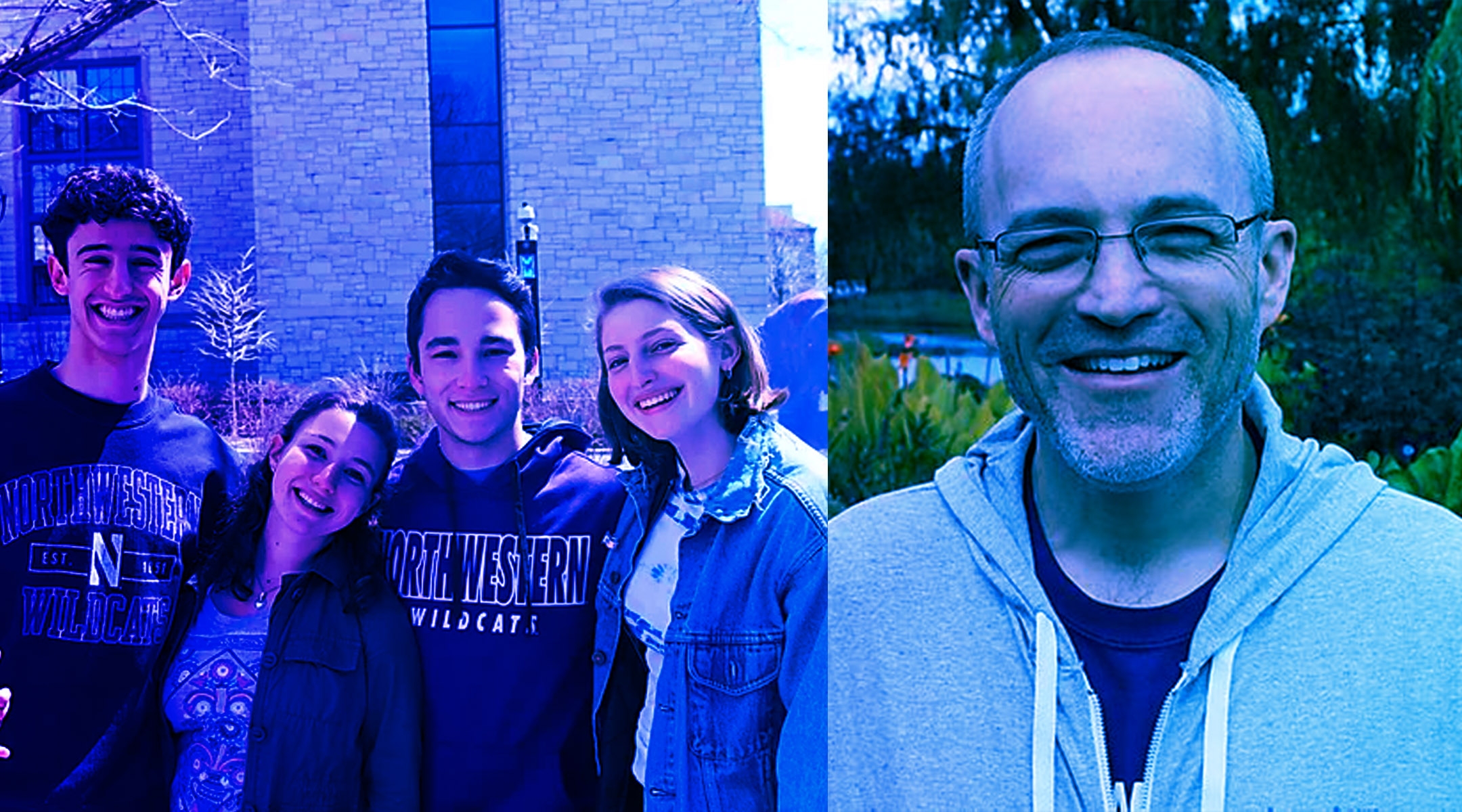EVANSTON, Ill. (JTA) — I’ve been working in campus Hillels, first at Harvard and now at Northwestern, since my current students were just toddlers. So I had a deep well of experience to draw upon when the coronavirus pandemic descended, and many of the lessons that have helped get our community through the crisis so far were ones that have resonated during previous challenges.
But the pandemic has also taught me something new about the students we work with — a lesson that I believe must inform Hillel work even after students can one day come together again in our buildings.
First, however, three lessons I’ve relearned in the last eight weeks amid sheltering in place, Zoom meetings with students and colleagues, Zoom schooling our kindergartner and third-grader, and devouring each new episode of “The Last Dance.”
Personal connection is key
Our staff reached out to each and every one of the nearly 1,200 Jewish undergraduates at Northwestern, not just the ones already active at Hillel. These personal, emotional, physical, spiritual wellness checks have kept our community united.
College students are remarkable
Our students are not content to take classes on Zoom and wait around for the pandemic to end. These are bright, energetic, creative and restless young people who want to change the world and make it better.
It takes a village to sustain a Hillel
Communication with our students, staff, board, parents, alumni, and university and institutional partners has been crucial for us throughout this crisis. This communication has been a key to our resilience and success in keeping operations going even during a time of incredible uncertainty.
I could have predicted all of these takeaways. But I was surprised by what happened the first week after students went home, when we launched a brief Zoom conference to usher in Shabbat.
Along with the young adults who had been on campus just days earlier, I saw their parents, their siblings, even their pets. I could see into their homes and catch glimpses of the spaces that had shaped them. As the “room” filled, I also saw alumni of Northwestern sign on, seeking connection after seeing a Facebook post about the event. There were more people, and a wider array of them, than we often draw to events on campus.
This moment of realization unlocked something I hadn’t understood so viscerally: Our Hillels do not exist in isolation from the rest of our students’ lives, and our Hillel community ranges far beyond the geographical location of Evanston and the temporal location of “these four years.”
Under normal circumstances, it is only at special moments during the year — the initial drop-off of first-year students, Family Weekend, Homecoming Weekend, celebrations of graduating seniors — that we see the families of our students connect to alumni in a meaningful way and experience what Northwestern Hillel means to our faculty and community.
But just in the past week, we had an Israel-themed virtual Shabbat gathering on Zoom that featured students, parents, alumni, staff members and friends from all across the country and a virtual Yom Hazikaron gathering that was moving, poignant and similarly attended by family members and alumni who normally would not have been there to mark Israel’s Memorial Day.
The impact of these experiences has not just been the aha factor of remembering that our students’ lives are interconnected with their families and home communities. It has been the emotional resonance — the uplift — of seeing and feeling these connections to our past, present and future.
While everything has changed for Northwestern Hillel, our commitment to our mission has not. If anything, it has only grown clearer and stronger. We are here to serve our students, to help to build community even — or perhaps especially — when connecting as a community in person is not possible.
I know now that our community stretches far beyond the students at any given time, and I plan to carry that lesson into the future when Northwestern’s Hillel building, currently undergoing unexpectedly perfectly timed renovations, can again be a hub for students on campus.
This piece is a part of our series of Visions for the Post-Pandemic Jewish Future — click here to read the other stories in this series. Use #JewishFuture to share your own ideas on social media. If you’d like to submit an essay for consideration, email opinion@jta.org with “Visions Project Submission” in the subject line.
JTA has documented Jewish history in real-time for over a century. Keep our journalism strong by joining us in supporting independent, award-winning reporting.







